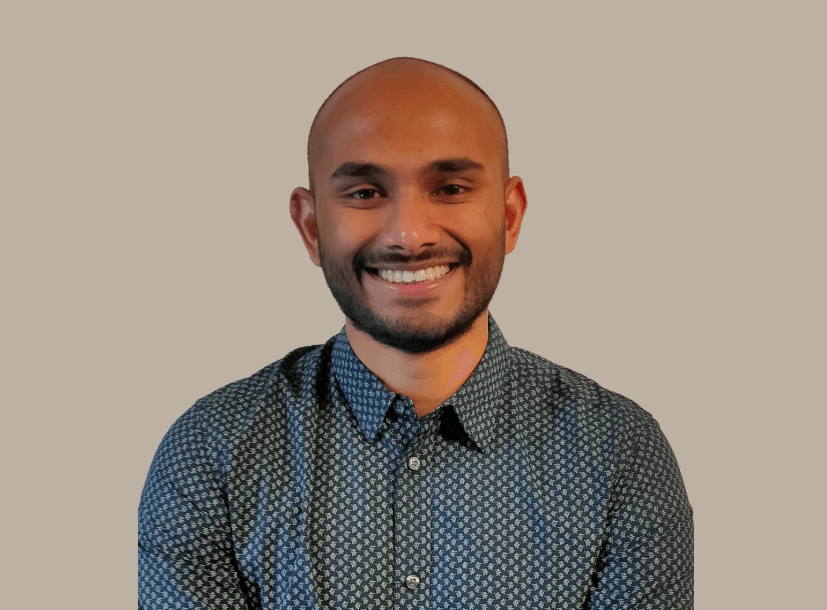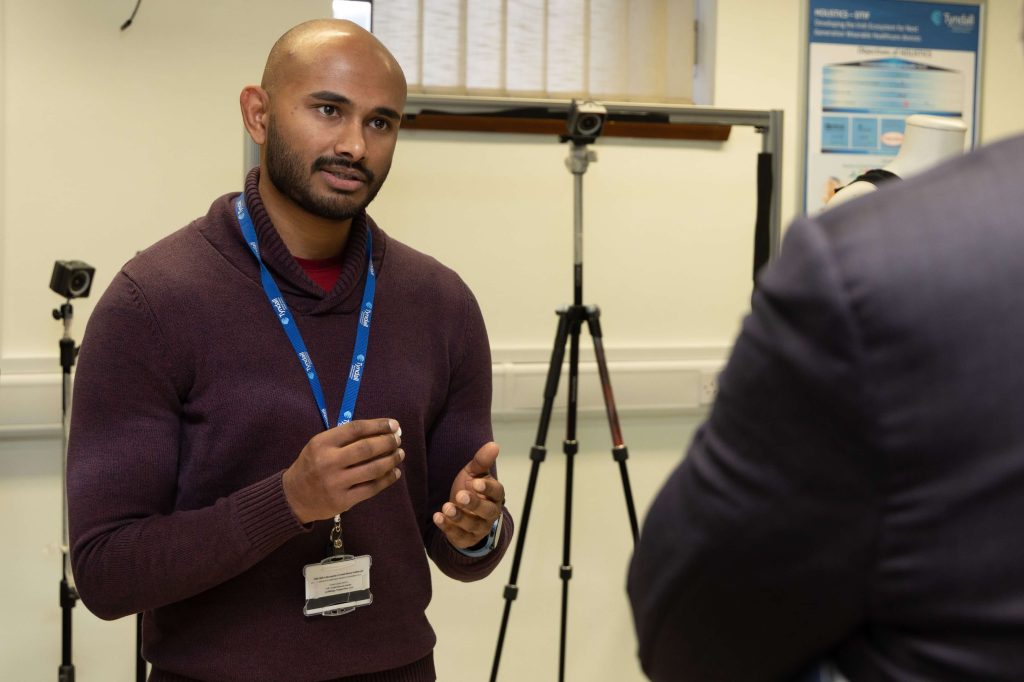Today we hear from Ryan Sebastian, a PhD student in Life Science Interface.
What is your current role and research focus?
I am a second-year PhD student. My PhD project focuses on the extraction of Interstitial Fluid through hollow microneedles. Interstitial Fluid is the fluid found in the spaces around cells and is rich in biomarkers. Hollow microneedles allow for painless and minimally invasive extraction of the interstitial fluid.
This hollow microneedle technology can be applied to a wearable device worn as a patch that continuously extracts and monitors the interstitial fluid for biomarkers such as glucose, lactate and cortisol.

What path led you here?
I did an internship in Dr. Conor O’ Mahony’s group in 2019 when I was studying a master’s degree. During this time, I got the opportunity to work on some very interesting microneedle based technologies, which sparked my interest in this field. This led me to apply for a research assistant position in Conor’s group after I finished my master’s.
The plan was to figure out a career path while I worked as a research assistant and to learn new skills in the meantime. After working as a research assistant for one and a half years, I decided to pursue a PhD in Conor’s group. The benefit of joining Conor’s research group was already being familiar with microneedle technologies and the working environment before I even began the PhD.
This familiarity and the wide range of skills I learned during my time as a research assistant has been a tremendous asset throughout my PhD.
Did you have a role model who influenced your career choice?
My dad is a role model that significantly influenced my career choice as an engineer. From a young age, he taught me the value of working hard and gaining technical knowhow.
He taught me how being able to repair and build things can be really useful, which has been a strong driving force that led to my engineering career.

How has working at Tyndall enabled you to fulfil your potential?
The multidisciplinary nature of my colleagues allows me to find experts in areas that I need help in, which greatly guides my learning. There is a learning and collaborative mindset at Tyndall, which allows me to vastly improve my knowledge in areas such as electronics, coding, microfluidics and solid modelling.
Besides having expert and helpful colleagues, working in Tyndall means that I have access to state of the art technical facilities and equipment, which is essential for my research.
I also have the opportunity to collaborate with international research institutes and industrial partners, which adds significantly to my professional network and substantially improves my soft skills.
What advice would you give your younger self?
Do what makes you happy. In my case, that is learning new things.
